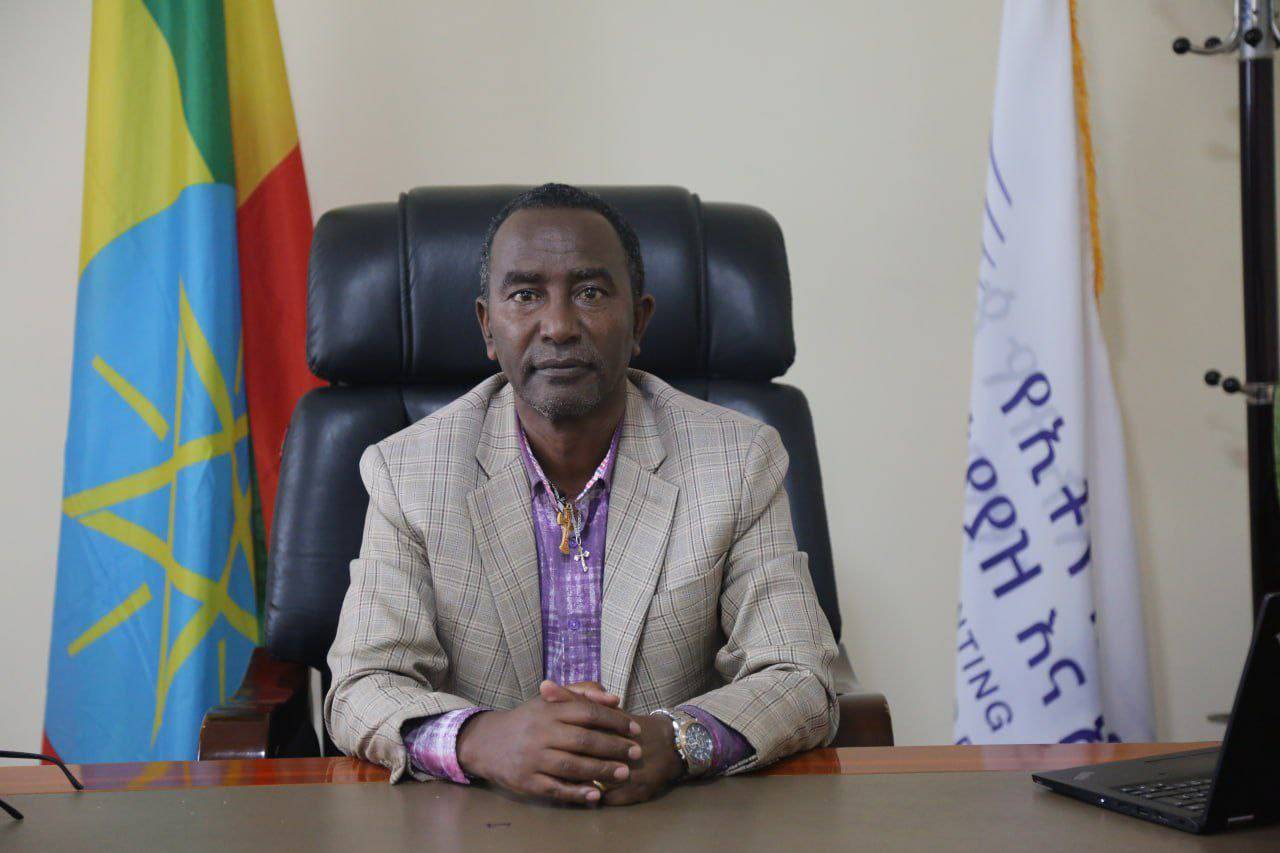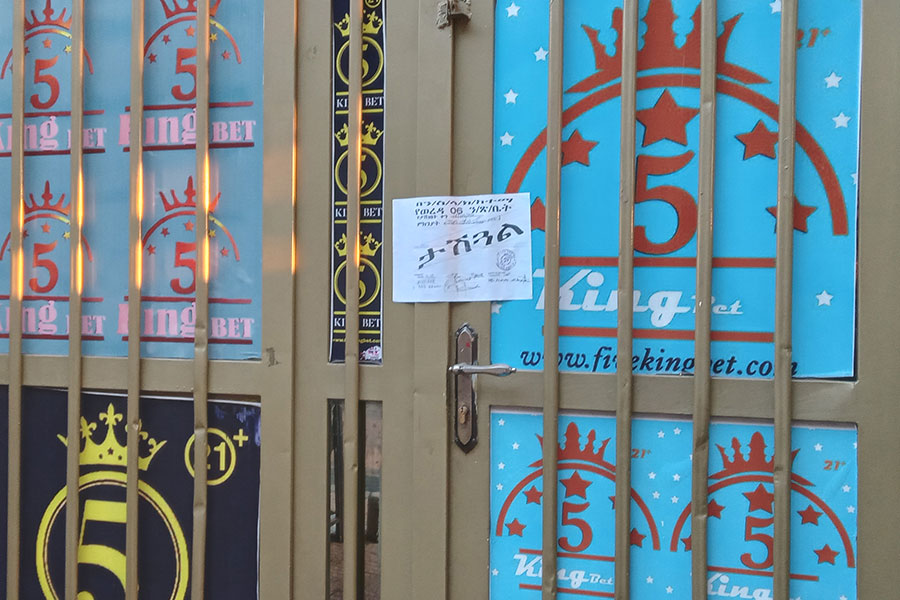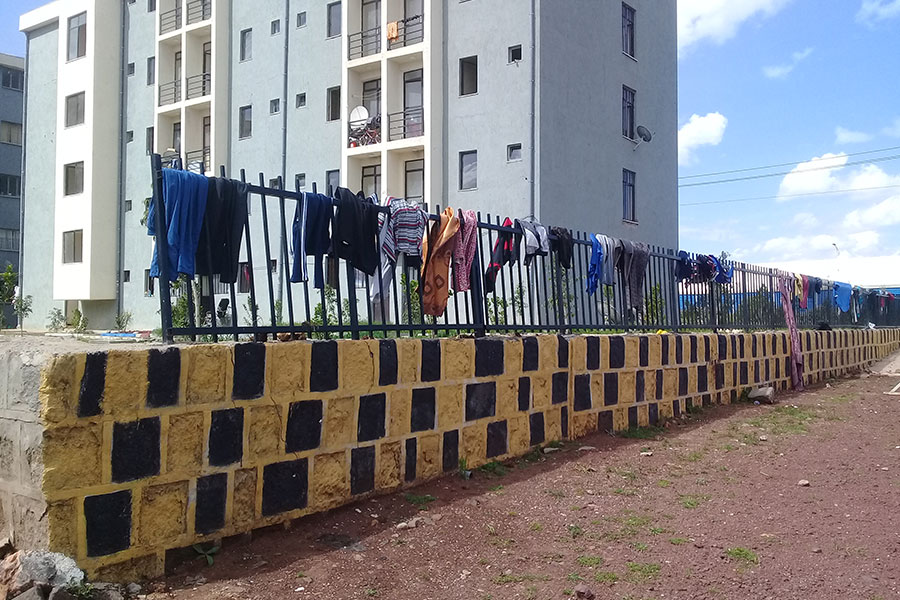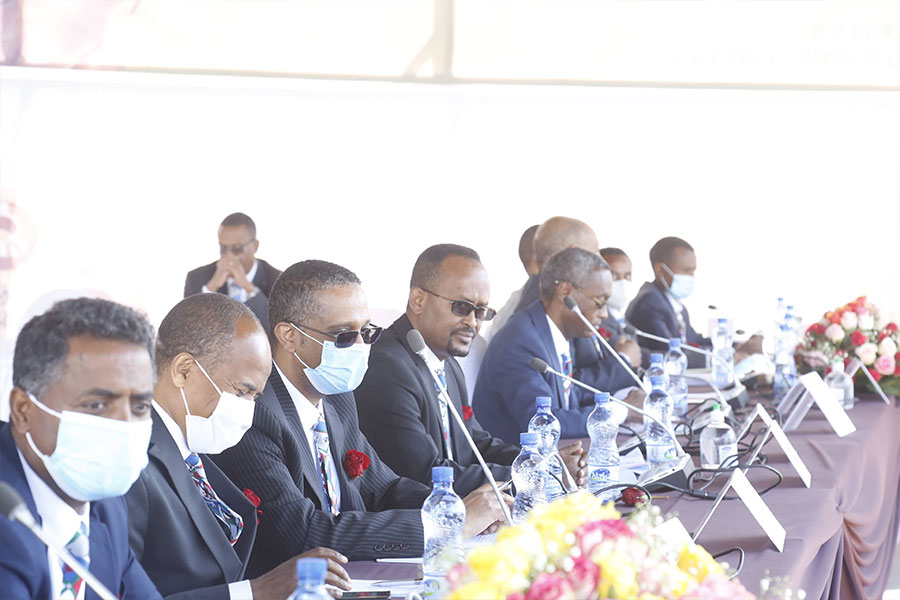
In-Picture | Mar 16,2024
Jul 18 , 2020
By FASIKA TADESSE ( FORTUNE STAFF WRITER )
Leaders of the Association of Ethiopian Bank Directors are pushing for the idea of jointly financing the ongoing construction of Ethiopia's signature mega dam project.
They have petitioned the National Bank of Ethiopia (NBE) to allow private banks to use one percent of their total deposits to purchase a bond for the construction of the Great Ethiopian Renaissance Dam (GERD).
Filed on July 17, 2020, the Association's resolution proposes 4.47 billion Br of the depositors guarantee collected from all of the 16 private banks as of June 30, 2020. The purchase of the bond will have a maturity period of five years. The Association has also left the decision on interest rates of the bond to the central bank, which will also hold onto the bond.
Out of the deposits mobilised by the banks, the central bank keeps five percent of the value in security reserves as a depositor guarantee. And the NBE is the only body that has authorisation over the money that is held as security reserve. The rate was reduced to five percent two years ago from 10pc, which was also cut from 15pc a few years back.
The Association reached the decision after holding a meeting on July 16, 2020, at the central bank with the presence of representatives from 13 banks. Before tabling the issue for the bank representatives that include presidents and board members, the six-member board of directors of the Association chaired by Zafu EyesusWork discussed and agreed to table it to bankrepresentatives.
"Since the issue needs a directive amendment," said a source close to the case, "the Association wrote a formal letter that requests the central bank to make adjustments after considering the proposal."
At a country level, anything for the development of the Dam is much appreciated, and the idea is admirable, according to Asfaw Alemu, president of Dashen Bank.
"I'm sure everyone agrees on this matter," he said. "However, it's obvious it'll affect the liquidity position of banks."
Asfaw explains that the central bank considers this one percent as a liquid asset even though its a long-term investment or asset.
Hailemelekot Teklegiorgis, board chairperson of Addis International Bank, shares Asfaw's reservation.
When the central bank calculates the liquidity position of banks, this reserve requirement is taken as a liquid asset, according to Hailemelekot, who walked out of Thursday's meeting before it ended.
"But if we purchase a bond, it won't be taken as a liquid asset, which will be problematic," said Hailemelekot, who adds that he is confused why the latest request came onto the scene.
Ethiopia launched the construction of the five-billion-dollar hydroelectric Dam with a generating capacity of over 5,000MW almost a decade ago and has completed over 74pc of the construction since then. The country is now gearing itself up to start filling it with water followed by early power generation using two turbines.
Regardless, one of the riparian countries, Egypt, has continually reflected fears that the Dam will threaten water supplies, which feeds its agriculture and economy. The latest dam negotiations that were held with the negotiator role of the African Union has ended with no agreement.
So far, the country spent 99 billion Br on the Dam, and about 30 billion Br to 50 billion Br in additional funds is expected to be used to fully complete the project. The civil works, electromechanical and hydro steel structure of the Dam have, respectively, reached 88.5pc, 45pc and 35pc.
The Great Renaissance Dam Coordination Project Office has so far raised 13.7 billion Br from the public. During the just ended fiscal year, it collected 744.8 million Br, 29 million Br of which was raised through the 8100A short message system (SMS) platform. From March to June, the office collected 266 million Br, out of which the 87. 3 million Br was obtained in June only.
“There are also 1.1 million subscribers to the 8100A platform,” says Hailu Abraham, media and communications director with the Office of National Council for the Coordination of Public Participation.
A retired former bank president also believes that this is not the right decision since the reserve requirement is a line of defence for the banks since all the banks do not have depositors insurance.
The bond is a long-term investment, they should have questioned what happens if something bad happens to one bank in the period of the retirement of the bond, it's going to be a disaster, according to the retired president.
"One thing to be reminded of is that the money in a safe isn't equal for all banks," he said. "This action defies the very purpose of the reserve requirement."
This reserve requirement is a self-created policy for the banks, according to Alemseged Assefa, former vice president of the National Bank of Ethiopia (NBE).
"But this needs the central bank's judgement," he said. "They need to assess the current situation in banks and make a decision."
In fact, this is a win-win situation for both parties as the banks can benefit the interest rate on the bond that has been sitting idle, and the government can be benefited by the project as well, according to Alemseged.
PUBLISHED ON
Jul 18,2020 [ VOL
21 , NO
1055]

In-Picture | Mar 16,2024

Fortune News | Sep 21,2025

Sunday with Eden | Jul 20,2024

Fortune News | Mar 30,2019

Featured |

Radar |

Radar | May 27,2023

Fortune News | Dec 25,2021

Fortune News | Nov 03,2024

Fortune News | Aug 13,2022

Dec 22 , 2024 . By TIZITA SHEWAFERAW
Charged with transforming colossal state-owned enterprises into modern and competitiv...

Aug 18 , 2024 . By AKSAH ITALO
Although predictable Yonas Zerihun's job in the ride-hailing service is not immune to...

Jul 28 , 2024 . By TIZITA SHEWAFERAW
Unhabitual, perhaps too many, Samuel Gebreyohannes, 38, used to occasionally enjoy a couple of beers at breakfast. However, he recently swit...

Jul 13 , 2024 . By AKSAH ITALO
Investors who rely on tractors, trucks, and field vehicles for commuting, transporting commodities, and f...

Oct 25 , 2025
The regulatory machinery is on overdrive. In only two years, no fewer than 35 new pro...

Oct 18 , 2025
The political establishment, notably the ruling party and its top brass, has become p...

Oct 11 , 2025
Ladislas Farago, a roving Associated Press (AP) correspondent, arrived in Ethiopia in...

Oct 4 , 2025
Eyob Tekalegn (PhD) had been in the Governor's chair for only weeks when, on Septembe...